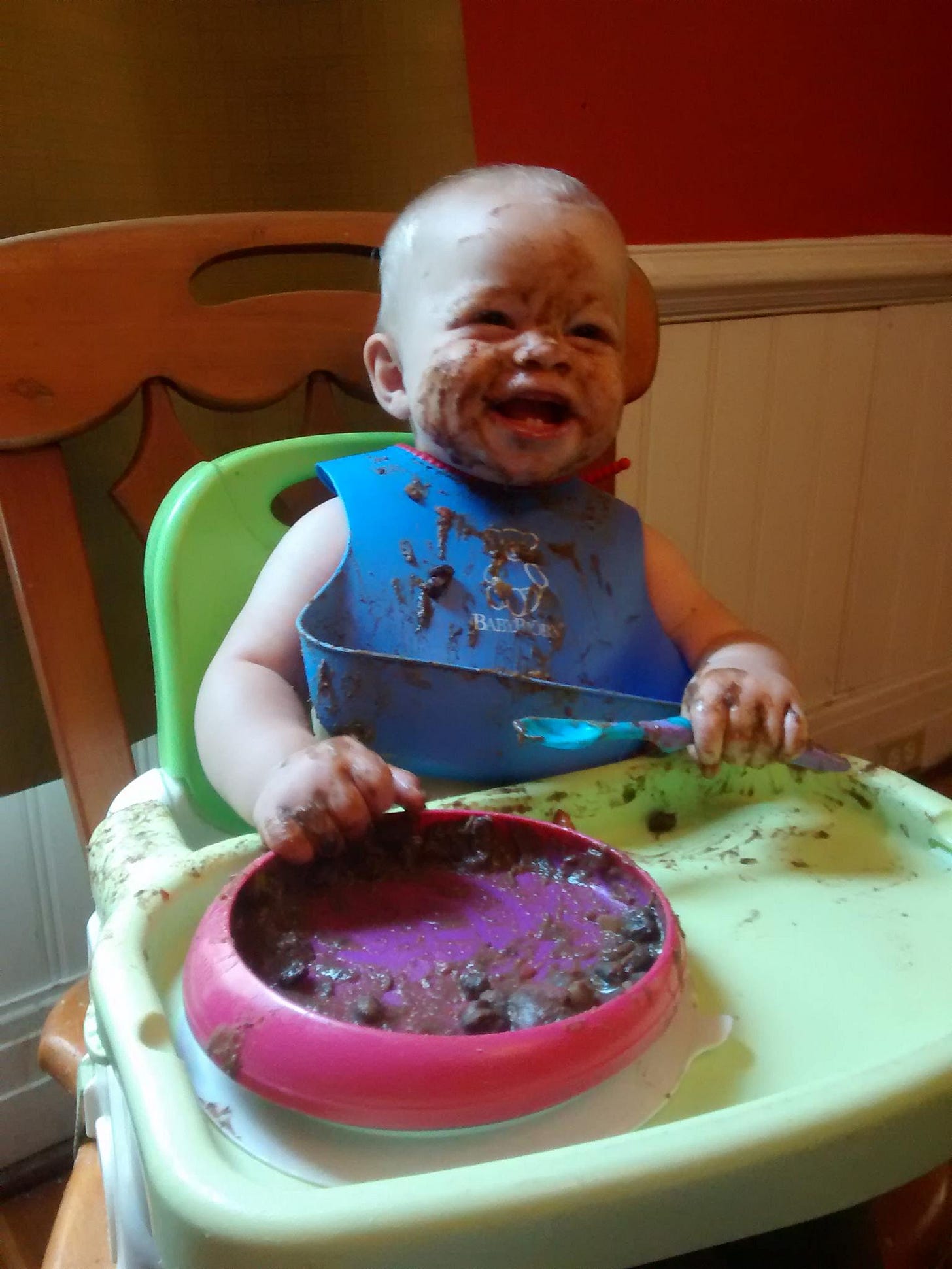Black bean beards and your life story's power
Autobiographical stories help us create and change meanin in our lives.
When my youngest child was about a year old, we snapped this picture of her with a giant with black bean soup plastered over her face. As my wife wrote when sharing the photo on Facebook, “You’ve heard of the milk moustache? How about the black bean soup beard?”
The story of the black bean beard is part of our family lore. My daughter will randomly bring it up, and it’s one of her favorite stories to tell dinner guests. “When I was a baby, I had a black bean beard!” she says, whether we’re eating black bean soup with them or not. I’m convinced she’ll bring it up in ice breaker games and on first dates and every major life celebration ahead of her.
Today, this daughter is nearly 8 years old, and black beans are her favorite food. Literally. Sometimes I ask, “What should I make for dinner?” and she says, “What about black beans?”
“What kind of black beans?” I say. “Black bean soup? Or tacos?”
“Just black beans!” she says. “Like, just open a can and let me eat black beans!”
She means it. Last night I poured a can of beans into a bowl, microwaved it for a minute, and she ate almost the whole thing with her dinner.
I’ve tasted black beans with no seasonings like that. They’re nothing to write home about. But for my daughter, black beans are part of her origin story. This unique story that we’ve related to her over the years tells her something about herself. When she eats black beans, she’s not just tasting them, she’s reflecting on a part of her life and making a statement about herself.
You may have powerful stories like this in your own life. For me, the stories my parents tell me about my early childhood help ground me in my identity as a writer: I didn’t talk until I was four, and they assumed I was autistic and may remain nonverbal. Then I suddenly started talking and telling stories. I never stopped concocting stories and ideas.
Countless research studies show the power of storytelling on our psychology and even neurology.
One paper explored stories told by a parent about events the child might not remember shaped how the children experienced the world: “Parental talk about past and future events was available as a model for the child to use to formulate her own memories and anticipations in verbal form.” The stories passed from parent to child and teacher to student help create a life story.
Another paper shares how such autobiographical stories make meaning in life. Such stories “configure the diverse events and actions of one's life into a meaningful whole.” We adapt these stories to “plots from [our] cultural stock of stories and myths,” so the stories we absorb from the world around us affect the meaning we create for ourselves.
Inside the brain, these stories trigger neurological action. Studies have shown that when we listen to a story, the listeners’ brain activity begins to mirror the speakers’s brain waves. Our brains synchronize.
What I hope you see here is the power of storytelling. It’s useful in selling—if a story can make a girl love plain black beans, it can sell a lot of things—as well as therapy, relationship building, and more.
Think about the stories you tell to yourself and to other people, as well as the stories other people tell you. These stories are a powerful way to connect and add meaning and action to our lives—and to change meaning and action, too.




